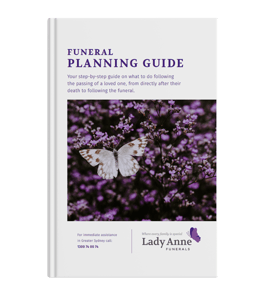Everyone processes grief differently. When you have varying personality types and circumstances, it can make it extremely difficult to know what to say to a grieving friend.
There are a number of ways of comforting the bereaved – it may be as simple as writing a message of condolence. But most of the time, a more meaningful conversation is required. Finding the right words of comfort for loss doesn’t have to be difficult, and there are steps you can take to make it easier.
When preparing to talk to a friend who’s experiencing grief, the setting is also very important. Find somewhere that is private (they probably won’t want other people overhearing the conversation) and where you won’t be disturbed.
Make sure the place is somewhere your friend feels comfortable and at ease. Find a time that works for both of you, but particularly ensure that you have as much time as is needed to see the conversation through once it begins.
In order to help you work out what to say to someone grieving, we’ve put together six questions you may want to ask a friend.
1. How have things been with your family and friends?
This can be important to establish for a few reasons. Firstly, if their relationships with family and friends have been poor, they may be feeling increasingly isolated. Secondly, it can give you a better idea of what other support networks they have around them and can draw upon if needed.
2. How are you feeling about that?
This is a very open question, and one that encourages the bereaved to vocalise their thoughts and feelings. They may choose to open up, or they may answer in a word (‘fine’, ‘terrible’, etc). Whatever they answer is okay and will give you an indication as to whether they are feeling comfortable enough to discuss that particular subject further.
3. Can you tell me about your loved one?
If your friend has recently lost someone close to them, it may be helpful for them to begin speaking about them – to reminisce. Coming to terms with memories of the deceased is an important part of grief.
4. Have you been through any other difficult times recently?
It can be good to establish whether your friend has been through a prolonged period of difficulty or whether this is an isolated experience. It may guide you in decisions around whether that friend should seek professional assistance.
5. When I was going through a difficult time, something I tried was 'X'... do you think this could help you?
This can be a very helpful piece in a difficult conversation. It lets the bereaved know that they are not alone – that you have been through difficulties, and so have many other people. Knowing that they are not isolated in their grief can be incredibly comforting.
6. What can I do to help?
And finally, asking what you can do can be very important. Your friend may be in need of help in a specific area and can let you know. However, in asking this question, it’s equally important to be aware of your boundaries – allowing the bereaved to place unrealistic expectations onto you can be unhealthy for all involved. Ask this question with an open heart and open eyes.
Organisations like Beyond Blue, Reachout and Headspace have helpful online resources to assist people experiencing grief. Talking is important, and can be life-changing, so if your friend is having a difficult time, make sure you check in with them to see if they’re okay.
What you can do to prepare your loved ones
Experiencing the loss of a loved one is incredibly difficult. Dealing with grief can be tiring and overwhelming. To also have to think about the various administrative tasks that will come, such as planning a funeral, can be daunting. You can help to prepare those close to you by alleviating some of the stress that comes with loss.
Our free Funeral Planning Guide contains step-by-step instructions on what to do in the event of the passing of a loved one and can be printed out for later use.
And our Prepaid Funeral Plans assist you to ease the financial strain for those closest to you when it comes to planning a funeral.








